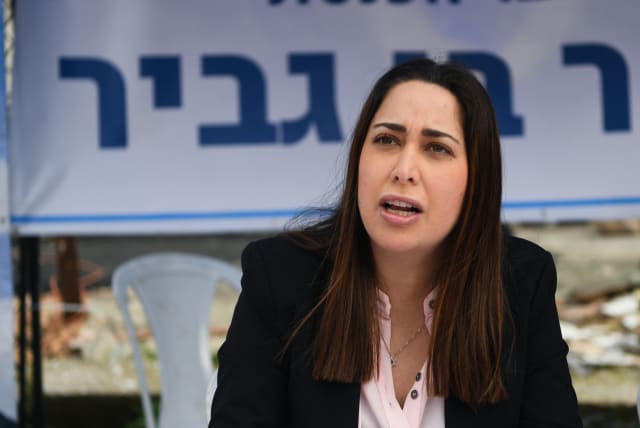Israel needs more women in government posts - editorial

While Israel’s friends and allies abroad will enjoy the service of a gender-equal crop of senior Israeli officials, Israel’s citizens at home have not been as fortunate.
Last month, Foreign Minister Eli Cohen announced the appointment of 12 new heads of Israeli missions overseas – of whom, he proudly noted, half are women.
That is welcome news. Israel’s representatives abroad should reflect Israeli society, which, like all societies, is roughly half-female.
But while Israel’s friends and allies abroad will enjoy the service of a gender-equal crop of senior Israeli officials, Israel’s citizens at home have not been as fortunate.
The Inter-Parliamentary Union ranks Israel 97th out of 186 countries by percentage of women in the legislature; only 24.2% of members of Knesset – 29 out of 120 – are women.
Of the 34 ministers in the current government, only six are women, and there is only one female minister, Minister of Transportation Miri Regev, in the security cabinet.

Perhaps most galling is the following: of all directors-general of government ministries, only one – Dr. Gali Sembira, the newly appointed director-general of the Public Diplomacy Ministry – is a woman. Several female directors-general who had run ministries under the previous government were dismissed by the new ministers and were replaced by men; the last holdout, acting Labor Ministry director-general Tair Ifergan, was let go, last week.
We can, and must, do better.
Why are more women not in Israeli government positions?
There are some 80,000 employees in the public sector, of whom nearly two-thirds (62%) are women. The higher one rises in the ranks, however, the fewer women are to be found. Only 45% of senior civil servants are women and a mere 24% of those at the highest echelons of government ministries.
Successive Israeli governments have taken note of the underrepresentation of women among senior management in the public sector. Prime Minister Benjamin Netanyahu’s previous government, which included many of the same coalition partners as his current one, decided in October 2020 to set a goal of at least 50% of senior public sector posts being held by women. The Citizens’ Empowerment Center in Israel, which tracks the implementation of government decisions, notes that progress has been made but that the government is still falling short of its own targets.
In early April, the government approved MK May Golan’s appointment as Minister for the Advancement of the Status of Women, a new portfolio carved out of the Social Equality Ministry. It soon emerged that Golan was being considered for the role of Israeli consul general in New York, a post she enthusiastically confirmed she would be delighted to fill. While that appointment was ultimately thwarted, it is telling that Golan was so willing to drop the ministry that had just been created for her and which was ostensibly intended to strengthen the status of women in Israel.
Several countries mandate by law that women make up a certain percentage of elected officials. But it shouldn’t take quotas to ensure that women are represented in the halls of power.
The government should lead by example. The appointment of more female ambassadors and the creation of a ministry dedicated to gender equality are steps in the right direction, but there is far more to be done. It is inconceivable that only one minister could find a qualified woman to run her ministry. It is equally inconceivable that party leaders would put forward electoral lists and ministerial appointments that are so woefully unrepresentative of the populace they serve. How can they expect the public sector they oversee to elevate women to leadership roles if they won’t do so themselves?
It takes little more than a glance around the table in any of the photos distributed from the weekly cabinet meetings to notice the glaring underrepresentation of women in the country’s elected leadership. The country’s leadership, both elected and appointed, should reflect Israeli society. It is high time the leaders of Israel’s political parties and the ministers of Israel’s government appointed qualified women to the senior leadership roles in which they belong.
